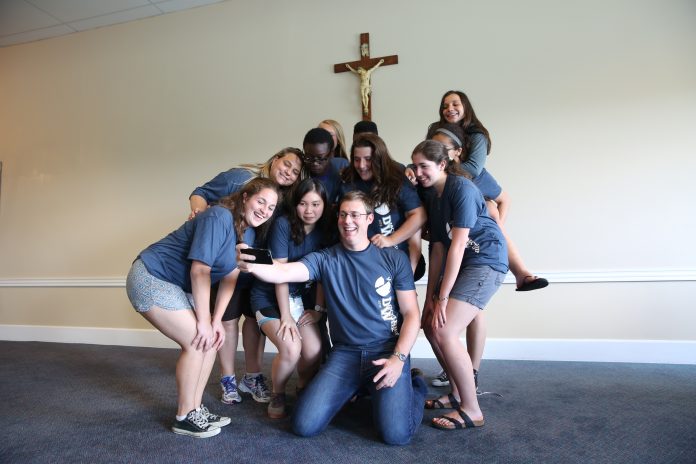
BY IRENE MARIA DISANTO
When we think of the Rite of Christian Initiation for Adults (RCIA), we think of it as the road taken by those who wish to enter the Catholic Church. Yet it can be so much more for everyone in the parish.
Sponsors in RCIA sometimes remark how much they have received in going through the process with the catechumens and the candidates. They learn so much about our faith in the environment of small groups. They are the best advertisers for inviting Catholics to join a program similar to the RCIA.
The RCIA model is a catechetical tool that can benefit many others, such as Catholics who have drifted away from the faith, or churchgoers who have forgotten — or never learned — the fundamental truths of Catholicism. RCIA can offer a greater appreciation and understanding of the Liturgy, Catholic history, and the Scriptures. It can help others to know why we believe what we believe — and foster appreciation for sacred Tradition and the role of the magisterium.
IDEAS FOR IMPLEMENTATION
Individuals choose three days and times that work for them to conduct a monthlong canvassing effort. For example, registration could be offered in the parish office during the week, in the narthex after Sunday Masses, and as open enrollment for new parishioners and late-comers. The adult faith formation team and volunteers then can collate the information, prepare the days and times for small groups, and match them with people willing to host the weekly meetings in their homes. A few groups might start at the beginning of the next quarter to accommodate late sign-ups and new parishioners, as well as serve as an opportunity for those in earlier groups to make up any missed lessons. The groups meet from September through the Easter season.
Once a month at the parish, all the groups could gather for a potluck supper. Leaders may base the setting on the theme of that particular liturgical season. This provides time for socialization with other groups and their families. Interested individuals who haven’t signed up yet could also be invited. This might be the impetus they need to join the program. These monthly get-togethers can serve to integrate each group into the larger tapestry of parish life.
SMALL GROUP TOPICS
The groups can use the topical format and materials of the RCIA, or the pastor and adult faith formation team can vary the talks and design their own series. The curriculum should follow the recommendations of the USCCB and the diocesan office of faith formation.
Topics should include the arc of salvation history, Scripture, the Liturgy, sacraments, Catholic history, apologetics, Tradition, and the magisterium. Other points of interest might include the Rosary, the role of the laity and the family in the Church and in society, social justice, Catholic culture, the papacy, and the liturgical seasons. In small groups, questions are sure to surface. The facilitators should be well-trained catechists who are able to explain confusing concepts that might lead to misunderstanding. Occasionally, this might mean meeting with the DRE or the pastor in order to find answers and then report back to the group.
During Lent, sign-ups could begin for the following September. Parishioners should have the option to continue meeting after the course is completed, perhaps with a different group.
GROWTH IN GROUPS
A few groups might be interested in exploring other areas of interest or building on previous conversations. One can never exhaust the variety of topics about the Catholic Church or reach the summit of one’s relationship with God. The dynamics of the different groups will follow the interests of their members. Some groups might devote themselves to deeper prayer, Scripture study, the Catechism of the Catholic Church, saints, and so on. These connections might lead to participation in other parish groups and ministries, such as extraordinary ministers of holy Communion, Lectio Divina, Divine Mercy, St. Vincent de Paul Society, Project Rachel, social justice or pro-life committees, parish outreach, and visiting the sick, elderly, and dying. They might also be interested in singles groups, family outings, book clubs, or movie nights.
The RCIA model benefits both individuals and families. Its personal, small-group approach is dynamic and flexible for many parish settings.
Irene Maria DiSanto, MA, enjoys participating in religious education both as a catechist and an RCIA facilitator. She is a freelance writer from Florida.
This article was originally published in Catechist, March 2017.
PHOTO: COURTESY OF GEORGE MARTELL/ARCHIDIOCESE OF BOSTON




